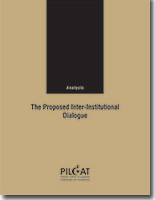
The realization has been growing over the past few years that Pakistan needs some kind of dialogue among the State institutions at the highest level. The underlying thought behind this realization is that various organs and institutions of the State seem to be increasingly encroaching each other’s space. The pitch and frequency of complaints and sometime protests against such perceived or real encroachments have been on the increase lately.
On January 17, 2019, just a day before assuming the office of the Chief Justice of Pakistan, Justice Asif Saeed Khosa surprised many by proposing an inter-institutional dialogue at the summit level and asked the President of Pakistan to convene and chair the meeting in this regard. Although similar proposals of inter-institutional dialogue have been made earlier, it is probably the first time that the proposal has come from the head of the judiciary and that alone is sufficient to make it extra-ordinary.
Is the proposed dialogue and the participation of the judiciary in such a dialogue the right cure? PILDAT consulted a range of constitutional and legal experts, political leadership, civil society and opinion-makers to carry out a study on if and how such a dialogue can and should take place. This analysis is based on the consultations carried out by PILDAT.






